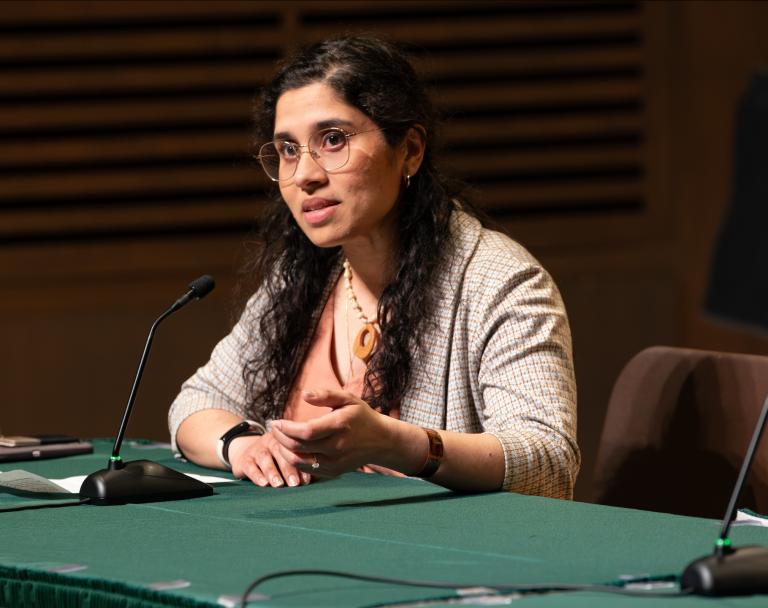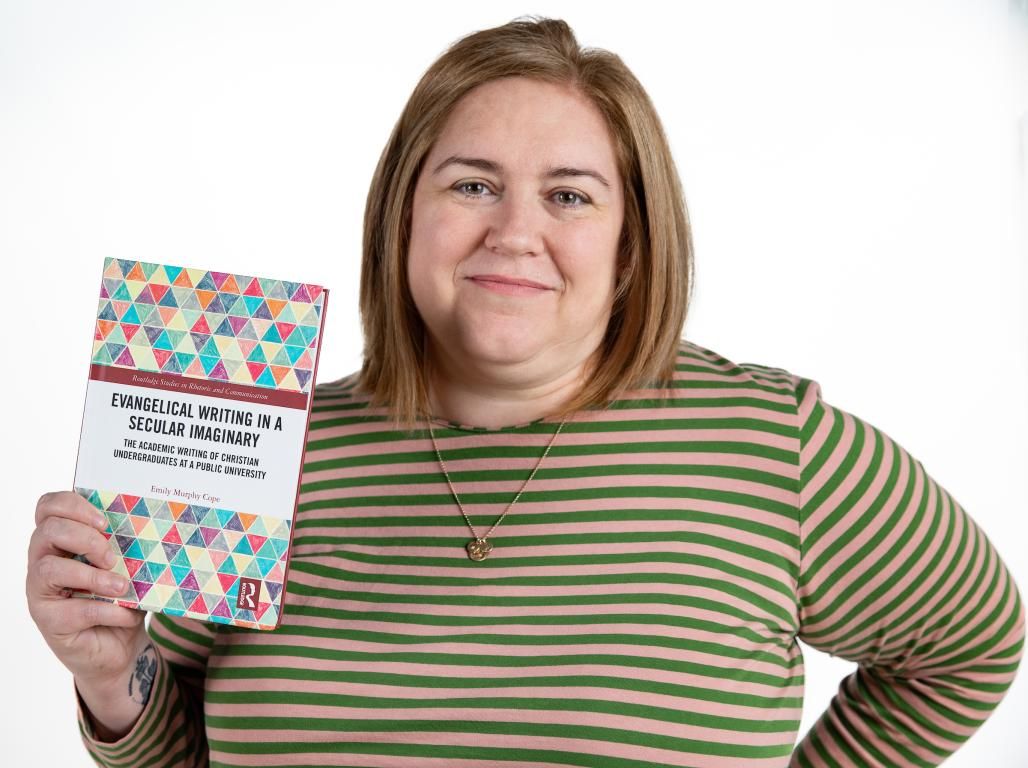Summer Residency Helps Professor Turn Doctoral Dissertation into a Book

The intersection of race, identity, and media is a key research focus of Dr. Madhavi Reddi, Assistant Professor of Communication at York College of Pennsylvania.
Growing up in Charlottesville, VA, Madhavi Reddi, Ph.D., Assistant Professor of Communication at York College of Pennsylvania, was exposed to the world of film and media at a young age. Her family’s love of movies and her fascination with the art form kindled a desire to explore the world of visual storytelling.
This interest led her to pursue a bachelor of arts degree in Film and Media Arts at American University in Washington, D.C. While there, she developed a broad appreciation for the power of media to shape perceptions and narratives.
The impact of film and media
Upon completing her undergraduate studies, Dr. Reddi embarked on a career in news and video content creation for higher education. She soon discovered, though, that her true interest lay in research rather than creation.
“When I was filming a lecture, I started to realize that I liked thinking about media and film and its impact,” she says.
Driven by a desire to delve deeper into the influence of media and film on society, she pursued a master’s degree in Communication, Culture, and Technology at Georgetown University in the nation’s capital. This academic journey ultimately led to her earning a doctorate in the summer of 2022 from the University of North Carolina’s Hussman School of Journalism and Media in Chapel Hill.
A vision for the classroom
Dr. Reddi’s approach to teaching is characterized by her commitment to fostering an environment where students can explore the intricate relationship between media and identity. Her goal is to encourage students to think critically about the power of representation and its profound impact on how we perceive ourselves and others.
About choosing to teach at York College, she says, “I really was excited by the fact that this is a space where students wanted to make as well as learn about media.”
In her classroom, Dr. Reddi challenges students to analyze media through a critical lens, exploring how they shape beliefs, values, and perceptions. She believes that by understanding the nuances of media representation, students can become more informed, empathetic, and socially conscious communicators.
Dr. Reddi’s dedication to the study of media representation is deeply personal. Growing up as the daughter of immigrants from India, she rarely saw South Asians represented positively or at all in the media. This portrayal had a profound impact on her experiences and interactions. Driven by the desire to rectify this deficiency, she has made it her mission to empower her students to critically evaluate and, when necessary, challenge media representations.
For Dr. Reddi, representation in the media is not just about visibility; it is about feeling seen, heard, acknowledged, and respected. By instilling this understanding in her students, she hopes to inspire a generation of media makers committed to promoting responsible and equitable representation across the media landscape.
Beyond the classroom
In 2023, Dr. Reddi had the privilege of participating in the Summer Residency Program at the University of Pennsylvania Center for Advanced Research in Global Communication (CARGC), where she collaborated with other scholars and furthered her research into communication around the world.
The CARGC residency aims to bring together early career scholars for a cooperative research and writing experience focused on global communication studies. It provides a dedicated space and community for scholars to work on projects related to global communication and engage in meaningful research and writing.
“It was really an unparalleled opportunity,” says Dr. Reddi. “It was interesting to see how people were researching and tackling other topics.”
While there, Dr. Reddi focused on transforming her doctoral dissertation into a book that will explore the shift of South Asian American stories in American entertainment media over the last decade.
“Today we have a huge influx of South Asian Americans in mainstream media,” she says. “The book explores how that came to be. Now that more South Asian Americans are telling their stories, how does representation change?”
Dr. Reddi has authored numerous articles published in journals and has others under review that center on the themes of South Asian identity, representation, or both.
Examining the York narrative
Many of Dr. Reddi’s endeavors are making an impact close to home. Working with The Gunter-Smith Center for Community Engagement’s Urban Collaborative, Dr. Reddi’s classes have taken part in community-building projects. One involved researching how local news media address critical issues such as homelessness, gun violence, and education, with a focus on creating recommendations to help journalists cover these topics more equitably.
“Working with the Center for Community Engagement and Urban Collaborative has been a collaboration with creating opportunities to get students out into the community and make social media posts and videos that benefit the community,” she says.
Dr. Reddi’s overarching goal is to continue publishing research and teaching courses that encourage a critical examination of the impact of media representation on identity formation.
Her students are a constant source of inspiration. Their diverse perspectives and insights enrich the classroom environment and contribute to the dynamic learning experience she fosters.
“When we make media, we’re making something meaningful that can benefit the community,” she says. “Some of my collaborations have been about making social media posts or news packages that responsibly highlight different parts of the community.”




